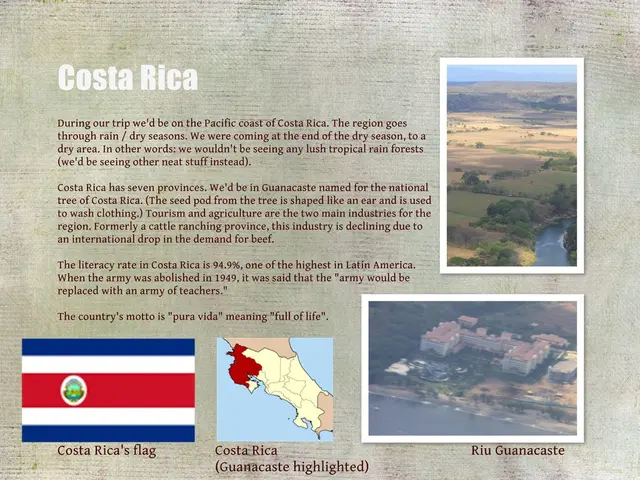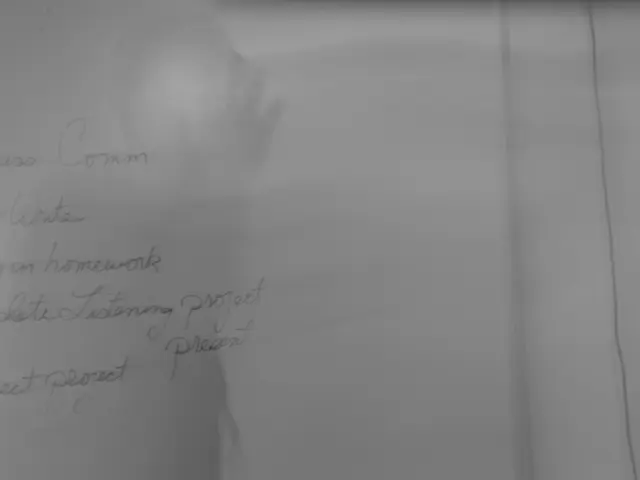Shift in Montenegrin Gambling Industry Regulation
Montenegro has unveiled a comprehensive reform of its gambling sector, introducing a new regulatory framework that emphasizes technology-driven oversight, increased transparency, and responsible advertising. The changes aim to address long-standing gaps in oversight, reduce illicit activities, and secure a fair share of the sector's economic value for public resources.
Key Changes in the New Regulatory Framework
Tax Rates
The reforms see online gambling operators subject to a 10% tax on their net gaming revenue, while players must pay a 15% personal income tax on winnings exceeding €300. This updated tax regime is designed to boost state revenues from the sector [1][2].
Identification Protocols
Under the new law, mandatory player identification and video verification are now compulsory to enhance security and accountability. These measures aim to prevent underage gambling, which is explicitly criminalized under the new framework. The government also plans to collect extensive player data to better combat illegal betting and the shadow economy [1][2].
Advertising Regulations
Montenegro has introduced clear limits on gambling advertising to reduce aggressive marketing and protect vulnerable groups. The new regulations align with international best practices and policies in other European countries. The reforms ban certain former unrestricted gambling advertisements, enhancing public health protections [1][3].
Context and Industry Reaction
The new Games of Chance Act, adopted on July 31, 2025, replaces Montenegro’s outdated concession model with a robust licensing regime backed by real-time digital monitoring. The law, the first comprehensive sector reform in two decades, aims to strengthen institutional oversight, reduce illicit activities, and improve transparency [1][3][4].
Industry reaction has been mixed, with some operators protesting the increased fees and stricter requirements. However, the government emphasizes that reform resilience is necessary to withstand regulatory delays and lobbying pressures [2].
Implications and Challenges
Regulators will face the challenge of maintaining consistent enforcement without disrupting market stability. The government has abandoned a proposal to limit online gambling payments exclusively to cash deposits after significant resistance from the sector. Instead, operators will need to navigate new compliance demands and balance the cost implications of increased fees and taxes [2].
The new system provides real-time digital oversight, bolstering the government's efforts to combat illegal betting and ensure market integrity. The reforms also criminalize gambling by individuals under the legal age and impose new limitations on payment methods, primarily restricting transactions to card payments or in-person transactions [1][2].
Television and radio gambling advertisements are now restricted to the hours between 6 a.m. and 10 p.m., and advertising regulations have been tightened to promote responsible messaging [1][3]. The casino licensing fee has been doubled to €100,000 [2].
In summary, Montenegro’s new gambling law institutes a stricter, transparent, and health-conscious regulatory framework through increased taxation, enforced player verification, and tighter advertising controls to safeguard public interests and boost economic oversight [1][2][3][4].
[1] Gambling Times [2] The Montenegro Observer [3] The Financial Times [4] The European Gaming Industry
- The new gambling reform in Montenegro, as stated in The European Gaming Industry, includes policy-and-legislation changes that aim to boost state revenues from the sector through updated tax rates, charging online operators a 10% tax on net gaming revenue and players a 15% personal income tax on winnings exceeding €300.
- With the new Games of Chance Act, the Montenegrin government, as reported in The Financial Times, is taking steps to address casino-and-gambling-related issues such as underage gambling and aggressive marketing by introducing clear limits on gambling advertising and mandatory player identification and video verification.




